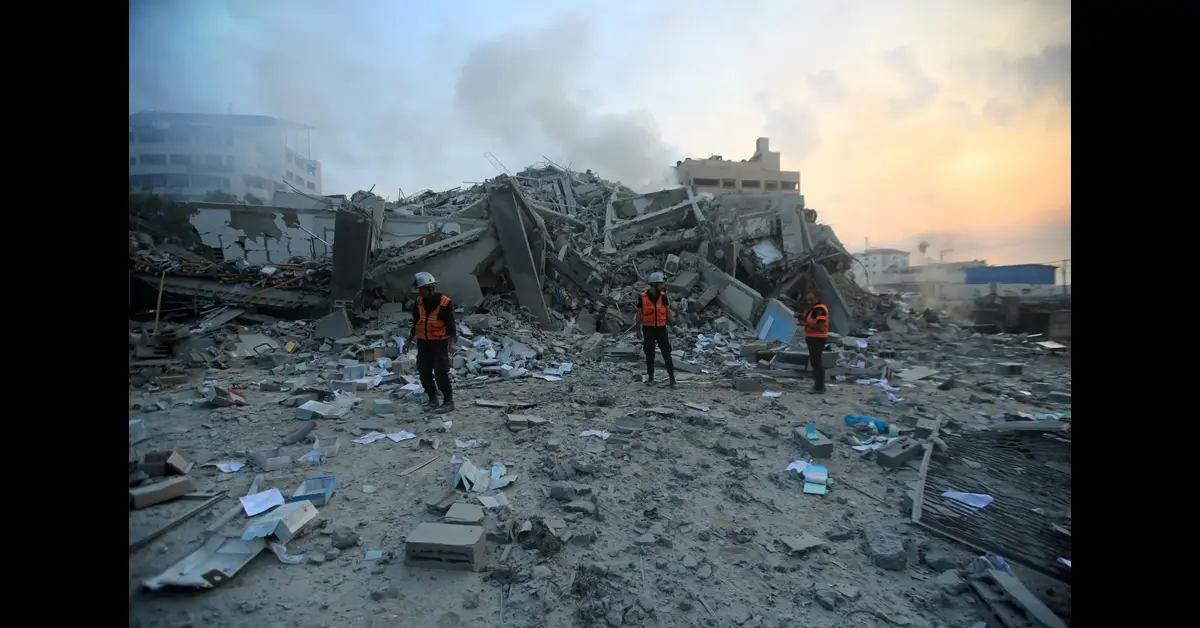Table of Contents
The conflict between Israel and Gaza has escalated to unprecedented levels, prompting severe international reactions. The International Criminal Court (ICC) chief prosecutor has taken a historic step by accusing Israel of using starvation as a weapon and seeking arrest warrants for top Israeli and Hamas leaders. This move has generated a whirlwind of responses from global leaders and nations, reflecting the deep divisions and contentious nature of the issue.
ICC Prosecutor’s Accusations
The ICC prosecutor’s charges against Israeli Prime Minister Benjamin Netanyahu, Defence Minister Yoav Gallant, and three Hamas leaders mark a significant escalation in the international community’s scrutiny of the Israel-Gaza conflict. The accusation of using starvation as a weapon is particularly severe, implying a deliberate strategy to inflict suffering on civilians in Gaza. The move to seek arrest warrants underscores the gravity of the allegations and the potential consequences for those involved.
International Reactions to the ICC’s Move
US President Joe Biden has labeled the ICC prosecutor’s request as “outrageous,” reiterating his unwavering support for Israel. Biden’s reaction is reflective of the strong alliance between the US and Israel, and it has been backed by threats from US lawmakers to take action against the This stance highlights the geopolitical complexities and the potential for significant diplomatic fallout.
Conversely, France has expressed support for the mandate and the fight against impunity, though it stopped short of explicitly endorsing the prosecutor’s actions. The French foreign ministry emphasized the importance of adhering to international humanitarian law and warned of the dire consequences of civilian casualties in Gaza. France’s nuanced position reflects its broader commitment to international justice while maintaining a balanced diplomatic approach.
Palestinian Perspective on the ICC’s Actions
At a UN Security Council meeting, Palestinian UN envoy Riyad Mansour argued that only resolute international action could deter Israel’s actions in Gaza. Mansour’s statement emphasized the belief that Israel’s actions would not change without accountability and forceful intervention from the global community. This perspective underscores the frustration and urgency felt by Palestinians in the face of ongoing conflict and suffering.
Divisions Within the Democratic Party
The ICC prosecutor’s request has exposed significant divisions within the US Democratic Party. Senate Majority Leader Chuck Schumer condemned the move as “profoundly unfair” and accused the of bias against Israel. In stark contrast, Senator Bernie Sanders supported the actions, arguing for the necessity of upholding international standards of decency and morality. This split within the party reflects broader debates on US foreign policy and its stance on Israel.
Israel’s Military Actions and International Responses
Israel’s military operations in Gaza continue to result in significant casualties and destruction. Recent attacks on central Gaza have killed several Palestinians, intensifying the humanitarian crisis. The international community remains deeply divided on how to address these actions, with some nations calling for greater accountability and others defending Israel’s right to self-defense.
EU’s Stance on the ICC Decision
EU foreign policy chief Josep Borrell acknowledged the ICC prosecutor’s decision, emphasizing the court’s role in prosecuting serious international crimes. Borrell’s statement highlighted the legal obligations of states that have ratified the statutes to execute the court’s decisions. This reflects the EU’s support for international legal mechanisms while navigating the complex political landscape surrounding the Israel-Gaza conflict.
Mamata Banerjee Alliance Stand 2024
Conclusion: A Path Forward Amidst Deep Divisions
The ICC prosecutor’s accusations and the subsequent international reactions underscore the deep and persistent divisions over the Israel-Gaza conflict. The allegations of using starvation as a weapon add a new dimension to the crisis, raising critical questions about accountability and justice. As global leaders and nations navigate these turbulent waters, the need for a lasting political solution that addresses the root causes of the conflict becomes ever more urgent.
In summary, the actions and the varied international responses highlight the complexities and challenges in seeking justice and peace in one of the world’s most enduring and contentious conflicts. The path forward will require careful diplomacy, robust legal mechanisms, and a commitment to humanitarian principles to ensure a resolution that respects the rights and dignity of all affected populations.
